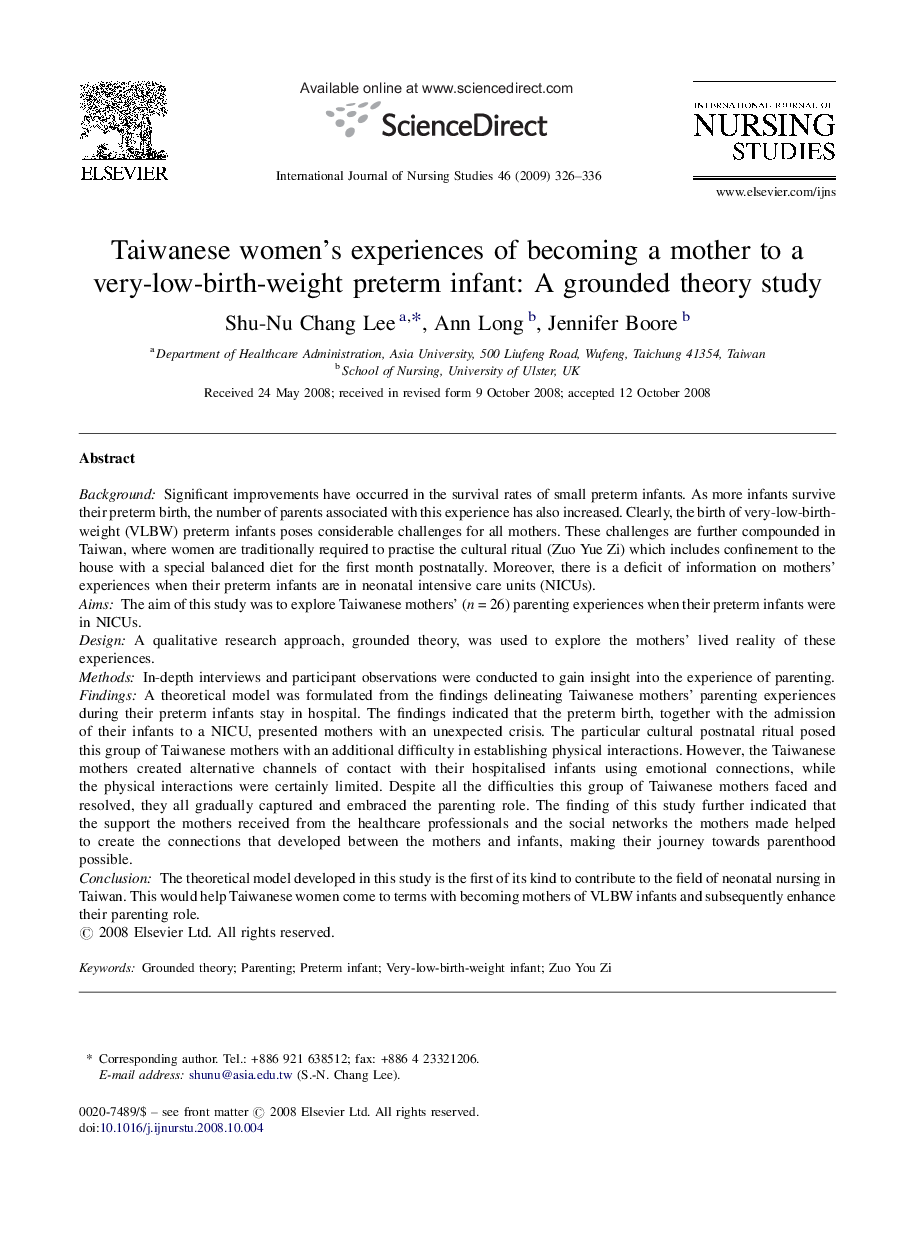| Article ID | Journal | Published Year | Pages | File Type |
|---|---|---|---|---|
| 1076651 | International Journal of Nursing Studies | 2009 | 11 Pages |
BackgroundSignificant improvements have occurred in the survival rates of small preterm infants. As more infants survive their preterm birth, the number of parents associated with this experience has also increased. Clearly, the birth of very-low-birth-weight (VLBW) preterm infants poses considerable challenges for all mothers. These challenges are further compounded in Taiwan, where women are traditionally required to practise the cultural ritual (Zuo Yue Zi) which includes confinement to the house with a special balanced diet for the first month postnatally. Moreover, there is a deficit of information on mothers’ experiences when their preterm infants are in neonatal intensive care units (NICUs).AimsThe aim of this study was to explore Taiwanese mothers’ (n = 26) parenting experiences when their preterm infants were in NICUs.DesignA qualitative research approach, grounded theory, was used to explore the mothers’ lived reality of these experiences.MethodsIn-depth interviews and participant observations were conducted to gain insight into the experience of parenting.FindingsA theoretical model was formulated from the findings delineating Taiwanese mothers’ parenting experiences during their preterm infants stay in hospital. The findings indicated that the preterm birth, together with the admission of their infants to a NICU, presented mothers with an unexpected crisis. The particular cultural postnatal ritual posed this group of Taiwanese mothers with an additional difficulty in establishing physical interactions. However, the Taiwanese mothers created alternative channels of contact with their hospitalised infants using emotional connections, while the physical interactions were certainly limited. Despite all the difficulties this group of Taiwanese mothers faced and resolved, they all gradually captured and embraced the parenting role. The finding of this study further indicated that the support the mothers received from the healthcare professionals and the social networks the mothers made helped to create the connections that developed between the mothers and infants, making their journey towards parenthood possible.ConclusionThe theoretical model developed in this study is the first of its kind to contribute to the field of neonatal nursing in Taiwan. This would help Taiwanese women come to terms with becoming mothers of VLBW infants and subsequently enhance their parenting role.
